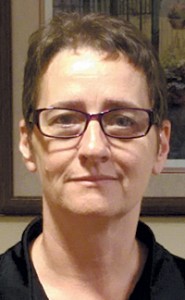November 25, 2015
Working with a Dementia or Alzheimer’s Patient
 By Mary Huebbe
By Mary Huebbe
Marketing Consultant
Ridgecrest Village
I remember working with a woman, and I had made the comment that I felt very sorry for a family that was watching their Mom go thru the stages of Alzheimer’s. She was very upset that I would say that, because her mom went through it, and she said it was harder on her mom than it was on her family. How would you like a life where you know something is wrong, but you don’t know what it is or how to communicate it properly? What if you had to go to the bathroom, but you couldn’t remember where it was and after searching so long for it you accidentally go in your pants – how would that make you feel? As a family member, you would accept it and understand that it is the disease, but as the person it is happening to, you wouldn’t remember you had the disease and would just feel the shame of doing it. Those comments from my co-worker have stuck with me ever since. Yes, it is hard on both sides, but definitely the person who doesn’t understand what is going on would have it harder.
Since then, I tell people that no matter who you are or what your faith, color or beliefs are, when a person has dementia or Alzheimer’s, it all needs to disappear. You need to put who you are aside and become a part of their life. It is our job as caregivers to make sure we always maintain their dignity and show them respect. Make sure you are aware of them at all times, so that if they are searching for something you take the time to help them find it.
What is important for a caregiver to remember is they need to really listen and have patience and understanding when words won’t come. Sometimes we need to offer
suggestions when they are having difficulty. Avoid arguing (even if you know you are right) and give them encouragement to continue to explain their thoughts. You can even encourage unspoken communication, such as pointing. When you are speaking to someone with dementia or Alzheimer’s, make sure to use short simple words and speak slowly and clearly, so they are able to understand you better. Also make sure to limit the distractions around you.
We need to be aware of our own emotions, as well, There is a lot we can say without saying a word. Our facial expressions and the tone of our voice give a lot away. Keep a positive attitude and let them feel the care through your voice.
If what you do brings back something they pleasantly remember from their past, some of the love, joy or peace, then you definitely made a difference in their life. As caregivers, that is what we are called to do. Find out what their favorite song is or what they enjoyed doing throughout their lifetime, it starts there; all you need to do is let it go whatever direction they take you. It is an amazing feeling when you are able to reach into that emptiness and pull a piece of it to the surface for even a short time!
If you are interested in learning more about Dementia or Alzheimer’s, please join us on Friday December 11th from 1 to 3 p.m. in our Koning Center here at Ridgecrest Village. We are bringing in an amazing speaker, Teepa Snow, for a seminar on “Why they do what they do.” If you would like a peek at some of her work, you can look up “Phrases to Learn for Caregivers” by Teepa Snow on the internet.
Please RSVP on or before Friday, December 4th to Mary at (563) 391-3430, seats are limited. Over flow parking will be at Grandview Baptist Church, across from Ridgecrest Village on Northwest Blvd.
Mary Huebbe is the marketing consultant for Ridgecrest Village in Davenport, Iowa. For more information about Ridgecrest Village, contact Mary at (563) 391-3430 or BMorrison@RidgecrestVillage.org.
Filed Under: Health & Wellness, Retirement
Trackback URL: https://www.50pluslife.com/2015/11/25/working-with-a-dementia-or-alzheimers-patient/trackback/


